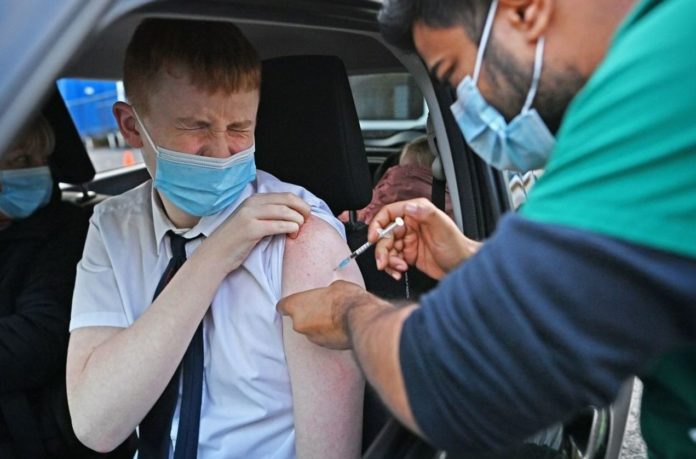Cells in the body are the immune system’s secret weapon, and they hold the key to ending the pandemic. What are the superhero cells fighting the coronavirus?
The Omicron strain is fast spreading, with specialists projecting that 40 percent of the population will be infected with the new SARS-CoV-2 variant within the next two months.
According to current data, the new variant does not appear to cause serious illness when compared to the Delta, though World Health Organization Director-General Dr. Tedros Adhanom Ghebreyesus points out that “while omicron does appear to be less severe compared to delta, especially in those vaccinated, it does not mean it should be categorised as mild.”
ButBut why does omicron appear to be, and probably is, less serious than Delta? Luke O’Neill, a professor of biochemistry at Trinity College Dublin, answers the question in an essay in The Conversation.
Initially, the omicron variant appears to “prefer” the upper respiratory system, similar to other common cold coronaviruses such as OC43. When the virus stays high in the respiratory system and away from the lungs, it causes milder symptoms that are similar to a normal cold.
However, there is a different explanation for why Omicron causes less serious sickness. And this is because the immune cells T cells, which are a major part of the body’s immune response, may efficiently neutralize the host variant cells infected with the new variant.
The novel type is said to be immune to antibodies that target the SARS-CoV-2 spike protein. Because the portions of the pin protein that detect antibodies have mutated dramatically with omicron, the antibodies are unable to kill the virus. However, it appears that the immune system has been sufficiently strengthened in terms of the amount of antibodies, a condition capable of neutralizing the spike protein – and a good reason to be vaccinated with the third dose, thanks to the boost of the vaccine and the relative increase of antibodies.
T cells or T lymphocytes, on the other hand, may do what the first line of immune protection – antibodies – cannot. Omicron-infected cells in the body can be identified, detected, and eliminated by these cells. The virus is also eradicated by neutralizing the cells. It resembles a sack with a drawstring.
T lymphocytes in our bodies that have been produced and matured to neutralize an earlier version of the spike protein (present in vaccinations) can perform this function. Several investigations have indicated that T lymphocytes generated by coronavirus immunization retain their ability to neutralize omicron in this manner.
The professor reminds us that, throughout millions of years of human development, our immune system continues to evolve. As a result, the immune quiver’s arrows against the coronary aren’t yet exhausted, and T cells are a good card to “play” in our defense against the omicron.
T cells, like the rest of the immune system, remember the coronavirus struggle and repeat it in the case of re-infection. They may be able to fight and neutralize future coronavirus strains. T-cells provide reason for optimism that the pandemic will soon be over.
Image Credit: Getty
You were reading: Omicron: Supercells that will put an end to the pandemic
